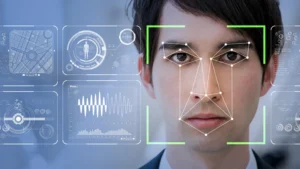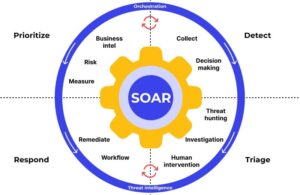The Power of AI in Content Creation: Revolutionizing Digital Marketing Strategies
In today’s fast-paced digital landscape, content creation has evolved significantly, driven by innovations in technology and changing consumer preferences. Among the most transformative developments is the rise of Artificial Intelligence (AI), which is reshaping how marketers approach content creation. By harnessing the power of AI, brands can revolutionize their digital marketing strategies, creating more personalized, engaging, and effective content that resonates with their target audiences. This article explores the multifaceted role of AI in content creation, its advantages for digital marketing, and the potential future it holds for this dynamic industry.
Understanding AI’s Role in Modern Content Creation
AI has made a substantial impact on content creation by offering tools and solutions that enhance human creativity and efficiency. From natural language processing (NLP) algorithms that can generate human-like text to image recognition systems that help create visuals, AI technology is fundamentally changing how content is produced. These tools enable marketers and content creators to focus on strategy and ideation while automating routine tasks, thus optimizing the entire process of content creation.
Moreover, AI assists in analyzing consumer behavior and preferences through data analytics. By studying vast amounts of data, AI systems can identify trends, predict customer needs, and even recommend topics that resonate with specific audiences. This deep understanding of consumer insights provides content creators with a powerful advantage, allowing them to tailor their output more effectively. With AI, the age-old creativity meets data-driven precision, making content creation not only faster but also more aligned with audience expectations.
As the technology continues to advance, AI will play an increasingly pivotal role in content creation. It is not merely a tool but a strategic partner that helps marketers innovate and respond more adeptly to the demands of their audiences. The tech’s generative capabilities allow for rapid brainstorming and content diversification, fostering a risk-taking culture in content development that can lead to groundbreaking campaigns.
The Benefits of AI for Digital Marketing Strategies
Enhancing Creativity with AI-Powered Tools
One of the most compelling benefits of AI in content creation is its ability to enhance creativity. AI-powered tools, such as GPT-3 for text generation or various design software, can stimulate creative processes by providing marketers and content creators with new ideas, formats, and styles. By leveraging machine learning algorithms, these tools can suggest blog topics based on trending keywords, generate headlines that capture attention, or even propose visuals that complement written content. Such technology not only boosts efficiency but also encourages content teams to think outside the box.
Additionally, AI can facilitate collaborative creativity. For instance, AI can sift through existing content across different platforms to identify gaps and opportunities, ensuring that new content aligns well with what is already out there. This not only minimises redundancy but emphasizes originality. By analyzing successful campaigns and content trends, AI tools can provide insights that help creators innovate while staying relevant and engaging for their audience.
Furthermore, the integration of AI in brainstorming sessions and creative workshops can result in a smoother ideation process, reducing the time taken for deliberations and enhancing overall productivity. This allows for a continuous flow of fresh ideas, making content creation a more dynamic and inspiring endeavor.
Streamlining Content Production through Automation
AI excels in automating the content production process, significantly reducing the time and effort required to produce high-quality material. Automation tools powered by AI can manage everything from content scheduling to distribution, allowing marketers to dedicate their time to more strategic tasks. By employing AI for repetitive tasks, such as editing and formatting blog posts, companies can speed up their content pipeline and ensure that their output remains consistent.
Moreover, AI can aid in repurposing existing content. It can automate the transformation of a single piece of content—like a blog post—into various formats, such as social media snippets, Infographics, or video scripts. This versatility allows brands to maximize the reach and longevity of their content while maintaining a lower production cost. As a result, organizations can engage their audience across multiple platforms without the need for extensive resources.
In terms of deployment, AI-driven tools can also optimize the timing and channel for publishing content based on predictive analytics. By identifying the best times to share content with the target audience, brands can enhance visibility and engagement metrics. This level of automation streamlines the entire process, making it easier for marketers to focus on strategy rather than getting bogged down by logistics.
Personalization: AI’s Impact on Audience Engagement
In an age where consumers expect personalized experiences, AI’s capability to tailor content to specific audiences is invaluable. By analyzing user behavior, preferences, and demographics, AI algorithms can craft customized content suggestions that resonate with individual consumer needs. This level of personalization increases engagement, as users are more likely to interact with content that is relevant to them, ultimately leading to higher conversion rates.
AI can also enable dynamic content delivery, where the same piece of content adapts based on the viewer’s characteristics or past interactions. For instance, e-commerce platforms can modify recommendations based on previous purchases or browsing behavior, creating a personalized shopping experience. This not only enhances user satisfaction but also encourages repeat visits and loyalty—key components of a successful digital marketing strategy.
Furthermore, with AI-driven personalization, brands can develop targeted campaigns that cater to specific audience segments rather than generic mass marketing. This targeted approach aids in identifying niche markets and addressing their specific pain points, ensuring that brands deliver the right message to the right audience at the right time. As a result, AI not only enhances engagement but also fosters stronger connections between brands and their consumers.
Measuring Success: AI Analytics in Content Strategy
AI’s analytical capabilities are a game-changer for measuring the success of content strategies. By utilizing sophisticated data analysis tools, marketers can track the performance of their content across various digital channels in real time. These tools provide deep insights into key performance indicators (KPIs) such as engagement rates, click-through rates, conversions, and more. Armed with this data, marketers can make informed decisions and adjust their strategies accordingly.
Moreover, AI can aggregate and analyze vast amounts of user-generated data to predict future trends and behaviors. By recognizing patterns, AI tools can help marketers identify what type of content resonates most with their audience, which topics are gaining traction, and the most effective distribution channels. This predictive analytics approach enables businesses to stay ahead of the curve, ensuring they create timely and relevant content that aligns with consumer interests.
Using AI for analytics also simplifies reporting, allowing marketers to visualize and interpret data effortlessly. This streamlining of the data analysis process empowers marketing teams to pivot strategies quickly and optimize their content in real-time—all critical components for staying competitive in the ever-evolving digital space.
The Future of AI in Digital Marketing and Content Creation
The future of AI in digital marketing and content creation appears poised for unprecedented growth. With advancements in machine learning and natural language understanding, AI tools are becoming increasingly sophisticated in generating meaningful and impactful content. As these technologies evolve, we can expect AI to play an even more integral role in shaping marketing strategies and enhancing creative processes.
Furthermore, ethical considerations around AI usage are also gaining attention. As brands leverage AI to create personalized content, they must navigate the balance between technology and privacy, ensuring that consumer data is handled with care and transparency. This responsibility will pave the way for trust and loyalty in the long term, allowing brands to build deeper relationships with their customers.
Finally, the collaboration between AI and human creativity will likely continue to flourish. As AI takes on more routine tasks, marketers and content creators will have the opportunity to focus on higher-level strategic planning and innovative thinking. This synergy between human input and AI capabilities will create a new paradigm in content creation, positioning businesses to effectively engage their ever-evolving audiences.
In conclusion, the integration of AI into content creation and digital marketing strategies is not just a trend but a fundamental shift that enhances creativity, streamlines production, and fosters personalization. By understanding AI’s role, embracing its benefits, and anticipating its future implications, marketers can better navigate a competitive digital landscape. As technology continues to evolve, those who harness the power of AI will undoubtedly lead the way in delivering innovative and engaging content that meets the needs of their audiences. For more insights on AI in content creation, check out Content Marketing Institute.










12 comments